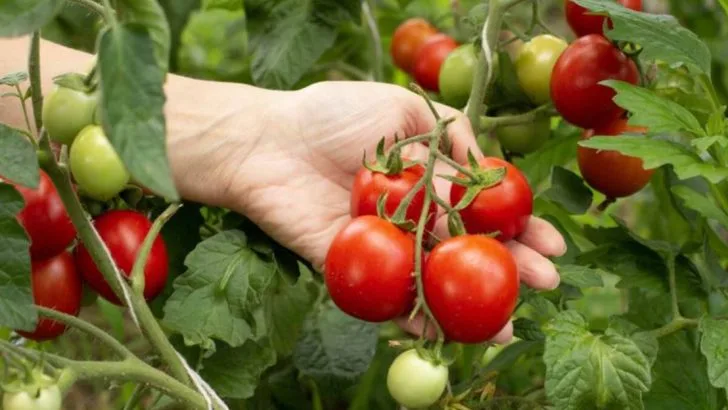Growing juicy, flavorful tomatoes sounds simple—until reality strikes. Even experienced gardeners sometimes fall into common mistakes that leave them with weak plants, sickly vines, or, worst of all, zero fruit. Whether it’s watering errors, poor pruning, or the wrong soil mix, small missteps can completely derail your tomato dreams.
But don’t worry—it’s easier than you think to get back on track. By avoiding these 10 frequent errors and using a few pro-approved secrets, you’ll give your tomatoes exactly what they need to thrive and produce a delicious, bountiful harvest.
Mistake 1: Overwatering
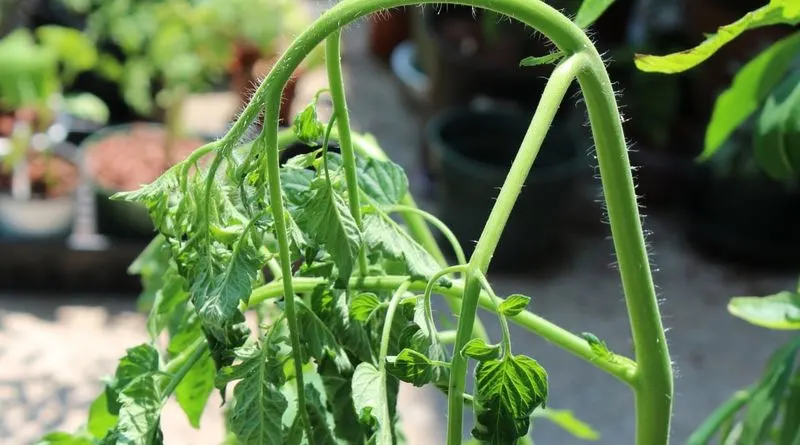
Drowning your tomatoes is a common misstep. While tomatoes love moisture, too much can lead to waterlogged roots and plant stress. This often results in poor fruit production and can attract fungal diseases. Strike a balance by checking soil moisture regularly. A simple finger test about an inch into the soil can guide you. Consider watering deeply yet less frequently to encourage strong root systems. Mulching can also help retain moisture without overdoing it. Adapting to your climate is key; hotter regions might need more vigilance.
Mistake 2: Planting Too Close
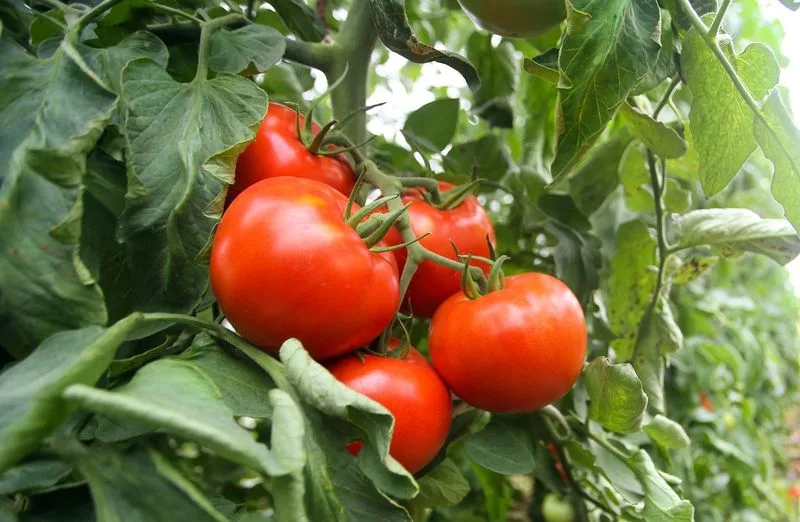
Space is the final frontier for many tomato plants. When plants are too close, they compete for sunlight and nutrients, leading to stunted growth and lower yields. Ensure each plant gets ample room to breathe and spread. Proper spacing also promotes air circulation, reducing disease risks like blight. Typically, determinate varieties need about 18 inches apart, while indeterminate types should be spaced 24 to 36 inches. Don’t let overcrowding sabotage your hard work. Measure and plan ahead to allow each plant to thrive.
Mistake 3: Ignoring Soil Quality
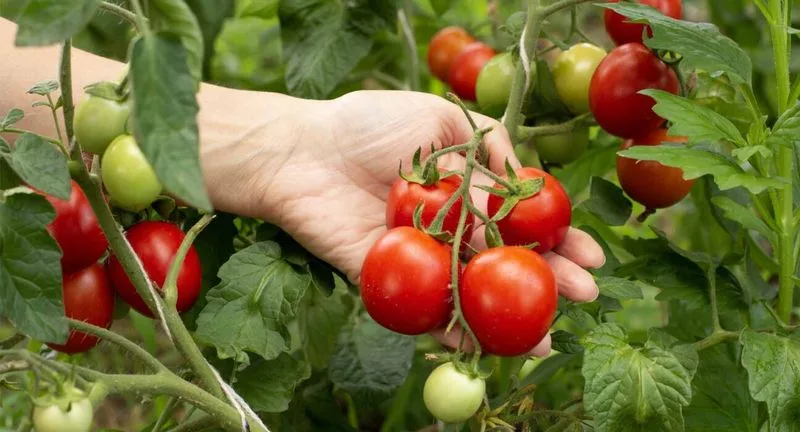
Tomatoes crave rich, well-draining soil brimming with organic matter. Ignoring soil quality can spell disaster for your harvest. Before planting, test your soil and amend it with compost or well-rotted manure. This boosts nutrient content and improves structure. A pH level between 6.0 and 6.8 is ideal. Consider rotating crops to maintain soil health year after year. Remember, what’s beneath the surface is just as crucial as what’s above. Investing in your soil will pay dividends in juicy, flavorful tomatoes.
Mistake 4: Wrong Tomato Variety
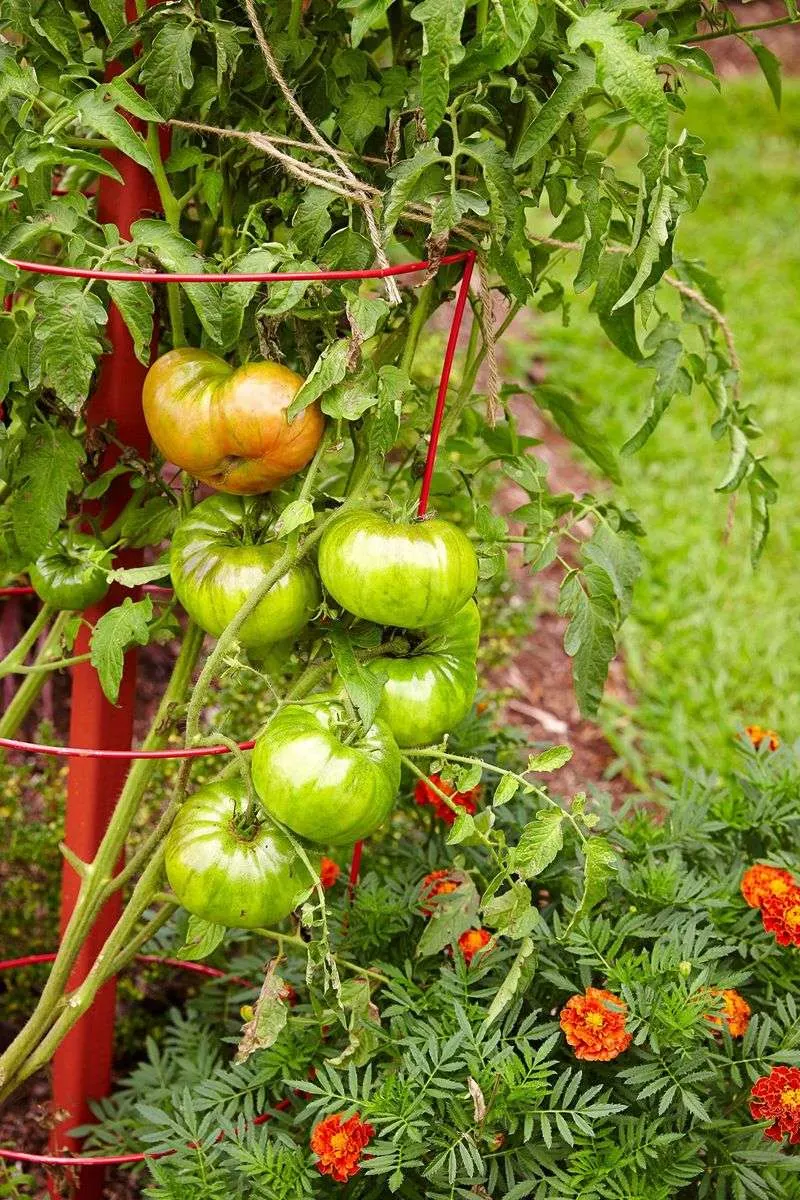
Not all tomatoes are created equal, and choosing the wrong variety for your climate can lead to disappointment. Understand your growing conditions first. For cooler climates, early maturing varieties are a smart choice. In warmer zones, opt for heat-resistant ones. Determinate varieties suit smaller gardens, while indeterminate ones require more space to sprawl. Research and match varieties to your needs and environment. This ensures a thriving garden and a variety of flavors and textures in your kitchen.
Mistake 5: Neglecting Pruning
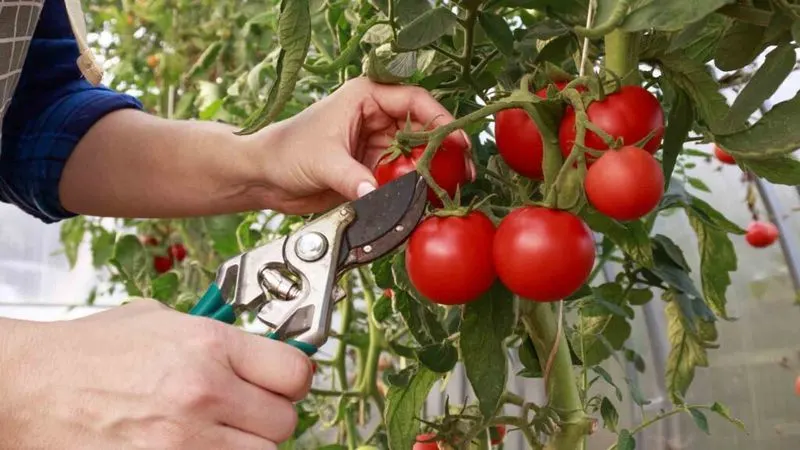
Pruning can feel like a fine art, but it’s essential for vigorous growth. Removing suckers and excess foliage helps direct energy to fruit production. However, be careful not to over-prune, as this can stress the plant. Focus on removing non-fruiting branches below the first cluster. This improves air circulation and light penetration. Tomatoes need the right amount of foliage to photosynthesize efficiently. Regularly inspect your plants and prune with a gentle touch. Your tomatoes will thank you with bigger, healthier yields.
Mistake 6: Lack of Support
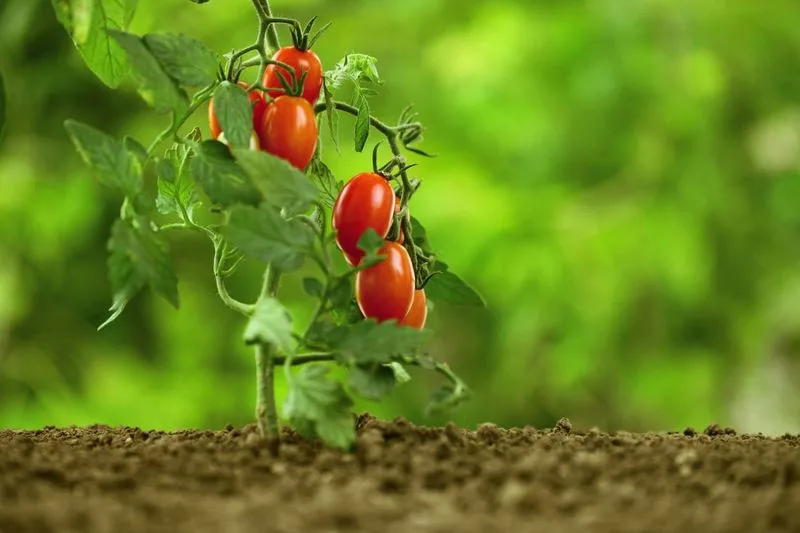
Tomato plants require strong support to thrive. Without it, they can become tangled and prone to disease. Use cages, stakes, or trellises to keep them upright and spacious. These supports ensure proper air circulation and sunlight exposure, vital for healthy growth. As plants grow, gently tie them to supports to prevent breakage. Consider the plant’s growth habit when choosing your support method. Investing in sturdy supports at the beginning of the season will save you time and effort later on.
Mistake 7: Overfertilizing
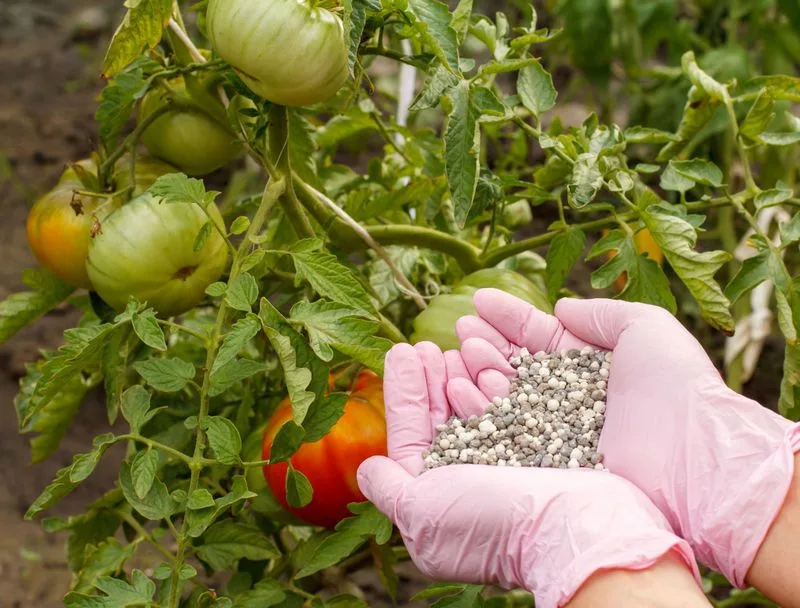
More fertilizer doesn’t always mean better results. Overfertilizing can lead to leafy growth at the expense of fruit. High nitrogen levels are often the culprit. Instead, focus on a balanced fertilizer and follow recommended rates. A soil test can guide precise nutrient needs. Organic options like compost or fish emulsion are effective. Remember, less is often more when it comes to feeding tomatoes. Monitor plant health and adjust as needed. A mindful approach will yield tastier, more abundant tomatoes.
Mistake 8: Not Enough Sunlight
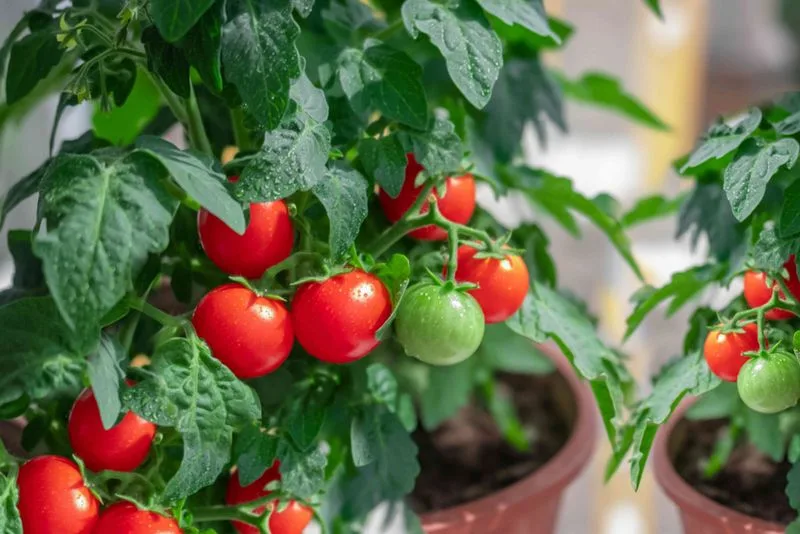
Inadequate sunlight can stunt your tomato plants. These sun-loving plants require at least six to eight hours of direct sunlight daily. Without it, expect fewer fruits and paler foliage. If your garden space is limited, consider containers that can be moved to sunlit areas. Alternatively, reflective surfaces can help maximize available light. Observe your garden’s sun patterns throughout the day and adjust planting locations accordingly. Ensuring ample sunlight will reward you with vibrant, productive plants.
Mistake 9: Poor Pest Management
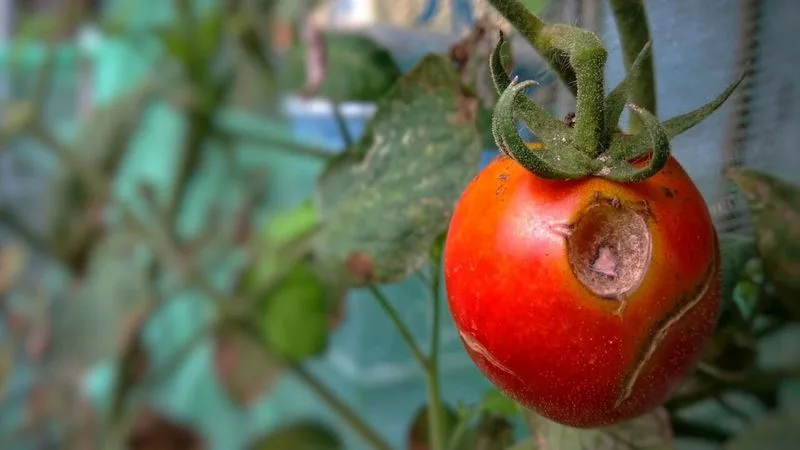
Pesky pests can wreak havoc on tomato plants if left unchecked. Regular inspection is key to early detection. Look for signs like chewed leaves or discolored spots. Employ natural remedies such as neem oil or insecticidal soap for mild infestations. For severe cases, consider introducing beneficial insects like ladybugs. Rotate crops annually to deter persistent pests. Being proactive rather than reactive can save your harvest from unwanted invaders. A vigilant eye will keep your tomato plants healthy and fruitful.
Mistake 10: Harvesting Too Early
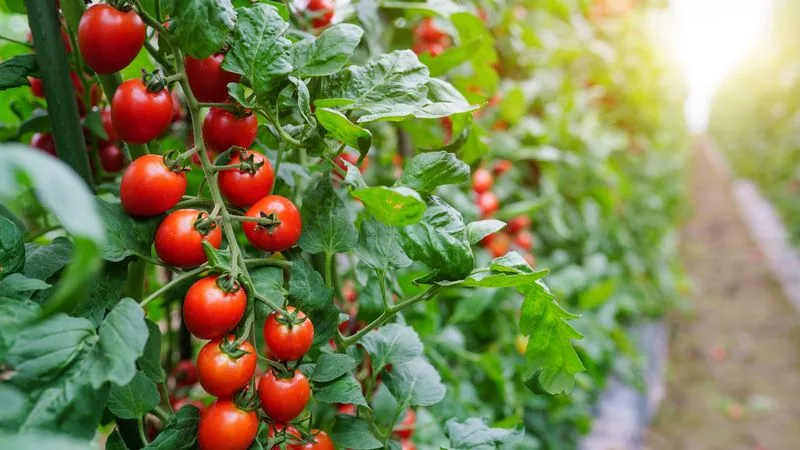
Patience is a virtue when it comes to harvesting. Picking tomatoes too early deprives them of peak flavor and nutrition. Wait until they fully ripen on the vine, showing vibrant color and slight give when squeezed. Different varieties have unique ripening cues, so familiarize yourself with yours. If frost threatens, consider ripening indoors in a paper bag with a banana. Timing your harvest ensures you enjoy the full taste profile. Savor the fruits of your labor by being timely and patient.
Pro Secret 1: Companion Planting

Enhance your tomato garden with companion plants like basil, which can deter pests and enhance flavor. Marigolds are another excellent choice to repel nematodes. These plants not only support tomato health but also improve yield and taste. Strategically planting these companions can create a vibrant and productive garden ecosystem. This natural approach to gardening is both effective and aesthetically pleasing. Observing how these plants interact will provide insights into maintaining a balanced and thriving garden.
Pro Secret 2: Using Eggshells
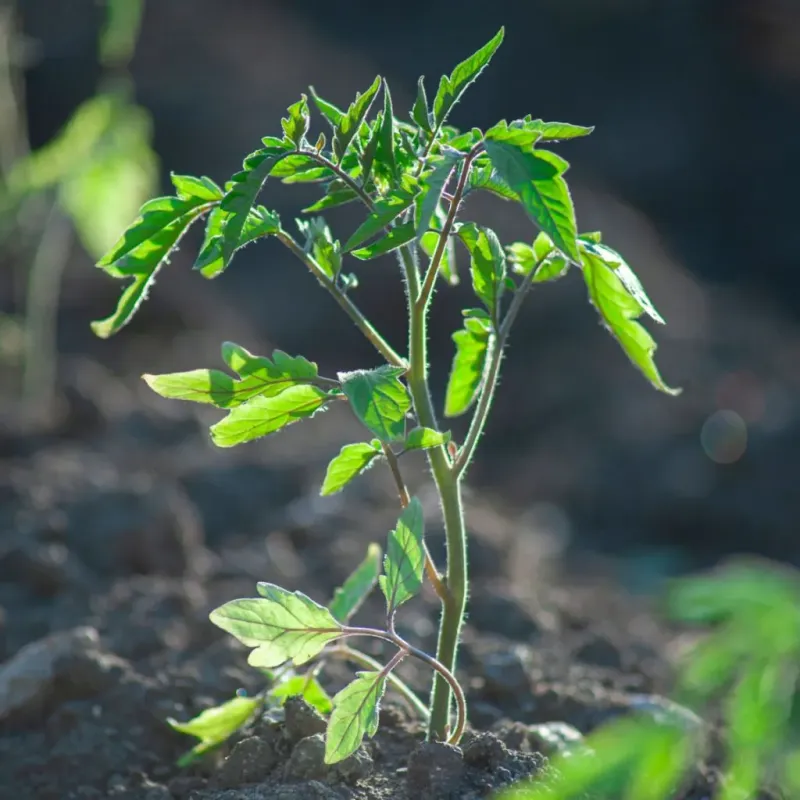
Repurpose eggshells for a calcium boost in your tomato garden. As they decompose, eggshells enrich the soil, preventing blossom end rot. Simply crush and scatter them around the base of your plants. This sustainable practice enhances soil structure and provides nutrients. Not only do they nourish, but they also act as a physical barrier against slugs. Embracing this zero-waste tactic benefits both plants and the environment. Watch your tomatoes thrive with this simple yet effective secret.
Pro Secret 3: Mulching Magic

Mulching is more than just a tidy trick; it’s a game-changer for moisture retention and weed control. A layer of organic mulch, such as straw or grass clippings, keeps soil temperature stable and roots protected. This method reduces the need for frequent watering and suppresses weed growth. Additionally, as mulch breaks down, it enriches the soil with nutrients. This simple step can make a noticeable difference in plant health and productivity. Enjoy a low-maintenance yet highly effective gardening strategy.
Pro Secret 4: Beneficial Bugs

Harness the power of nature by welcoming beneficial insects like ladybugs and lacewings. These predators naturally control aphids and other pests, reducing the need for chemical interventions. Encouraging a diverse ecosystem in your garden supports plant health and productivity. Introduce these insects by planting flowers they love, like dill or alyssum. You’ll enjoy watching these tiny guardians at work, ensuring your tomatoes grow unencumbered by harmful pests. This symbiotic relationship is a gardener’s best ally.
Pro Secret 5: Epsom Salt Boost
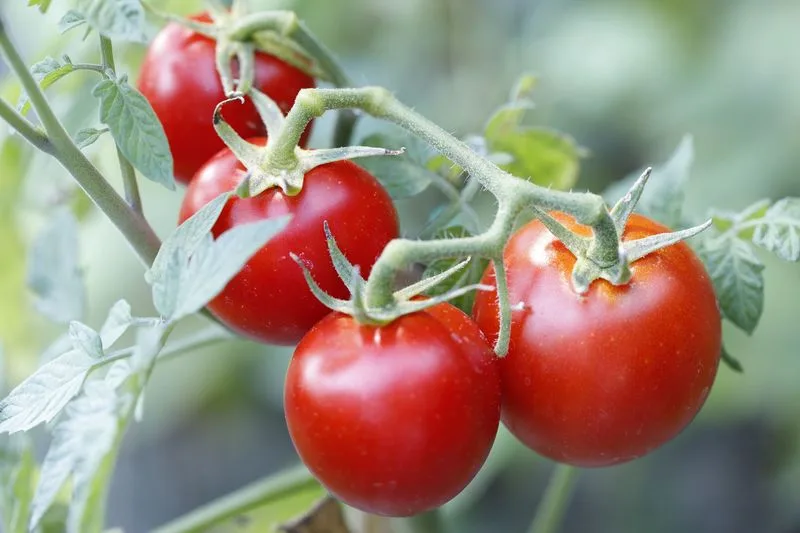
Epsom salt offers a magnesium boost, essential for strong stem growth and chlorophyll production. Dissolve a tablespoon per plant in water every two weeks. This supplement supports lush foliage and vibrant blooms. However, moderation is key; excessive use can disrupt soil nutrient balance. Observe your plants’ response and adjust accordingly. This secret helps prevent deficiencies and enhances overall vitality. An extra boost of Epsom salt could be the little trick that elevates your tomato garden to new heights.
Pro Secret 6: Nighttime Mist
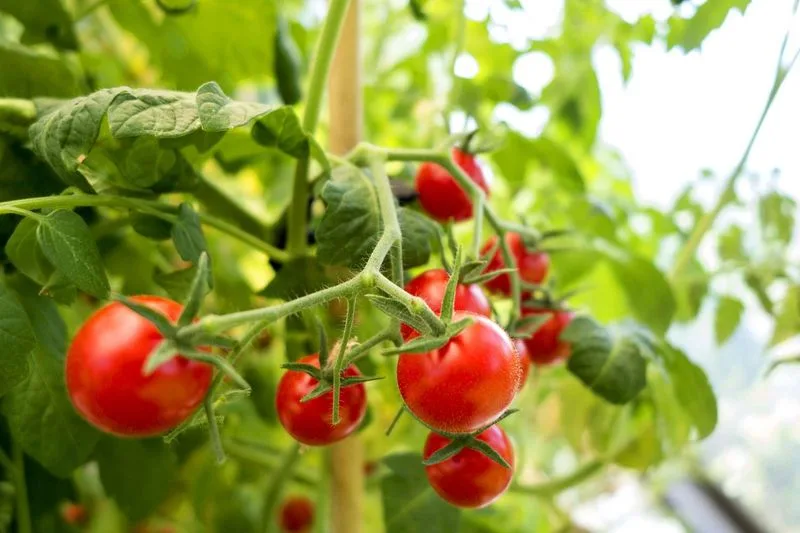
Misting your tomatoes at night might sound unusual, but it can enhance humidity and prevent transpiration stress. A gentle mist hydrates leaves without oversaturating the roots. This is particularly beneficial in dry climates. Be cautious with timing; evening misting is ideal to avoid fungus. Monitor your plants to ensure they respond positively to this technique. This subtle strategy can be a boon for healthy foliage and fruit set. Embrace this cooling evening ritual for thriving tomatoes.
Pro Secret 7: Drip Irrigation
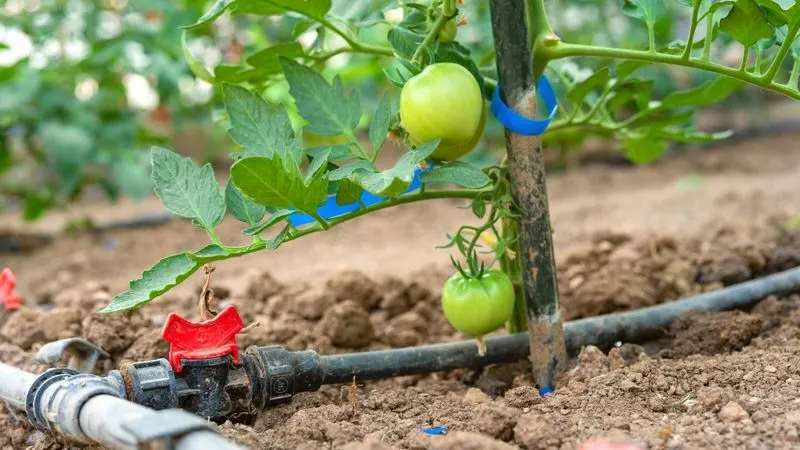
Drip irrigation is the epitome of efficient watering. It delivers moisture directly to the root zone, minimizing evaporation and water wastage. This system encourages deep root growth and reduces disease risk by keeping foliage dry. Adjust the flow to match your soil’s absorption rate. Although initial setup requires precision, the long-term benefits are worth it. Your garden will enjoy consistent hydration, even on the hottest days. Explore this reliable method for a hands-off, thriving tomato patch.
Pro Secret 8: Homemade Tomato Feed
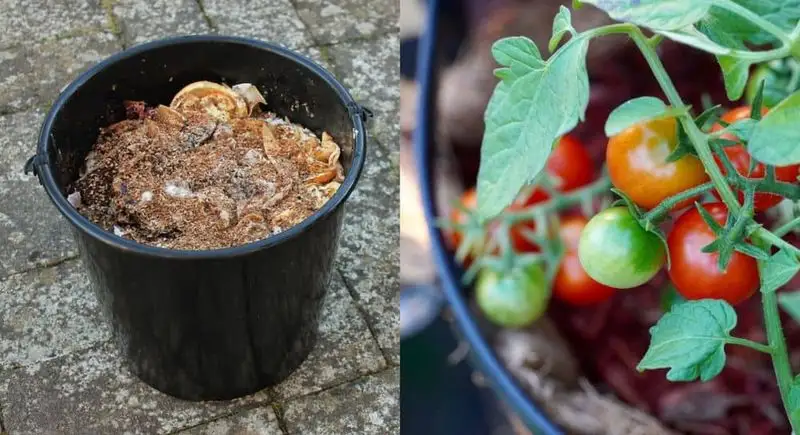
Harness the power of your kitchen to nourish tomatoes. Create a homemade feed using ingredients like banana peels and coffee grounds. These provide a rich source of potassium and nitrogen. Blend these kitchen scraps into a slurry and apply bi-weekly. This eco-friendly fertilizer boosts plant health and fruit production. Experiment with different combinations to find what your plants love. This method not only recycles waste but also enhances your gardening experience. Discover the joy of feeding tomatoes naturally.
Pro Secret 9: Strategic Shade
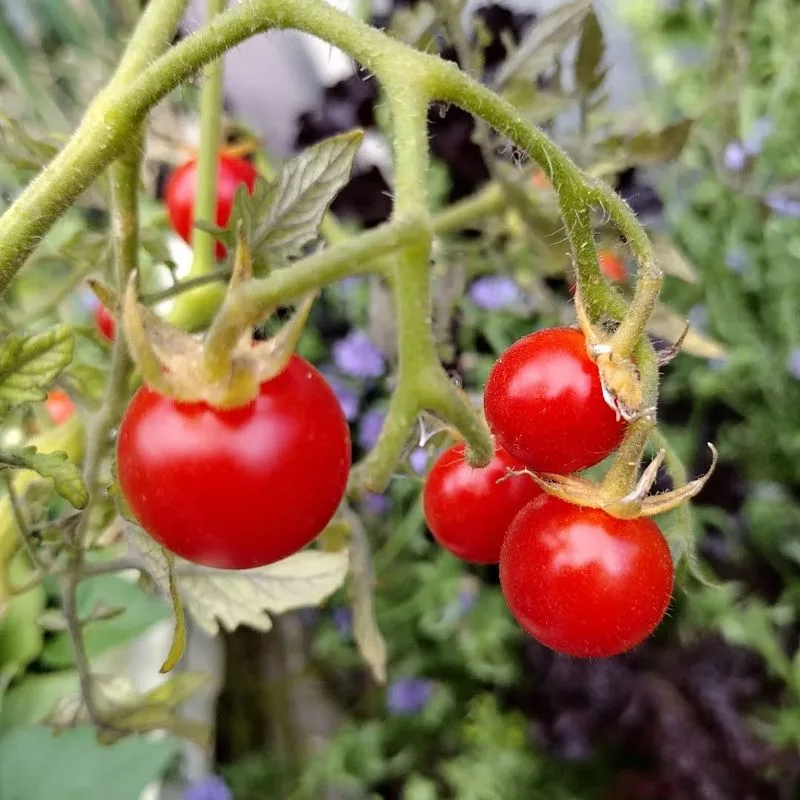
While tomatoes adore the sun, excessive heat can be overwhelming. Install shade cloths during peak afternoon hours to protect plants from scorching rays. This technique prevents sunburn and stress, allowing for continued growth and fruiting. Choose breathable materials to ensure airflow. By moderating sunlight exposure, plants remain healthy and productive. Tailor your shading strategy to your climate for optimal results. A little shade can make a significant difference in your tomato garden’s success.
Pro Secret 10: Compost Tea
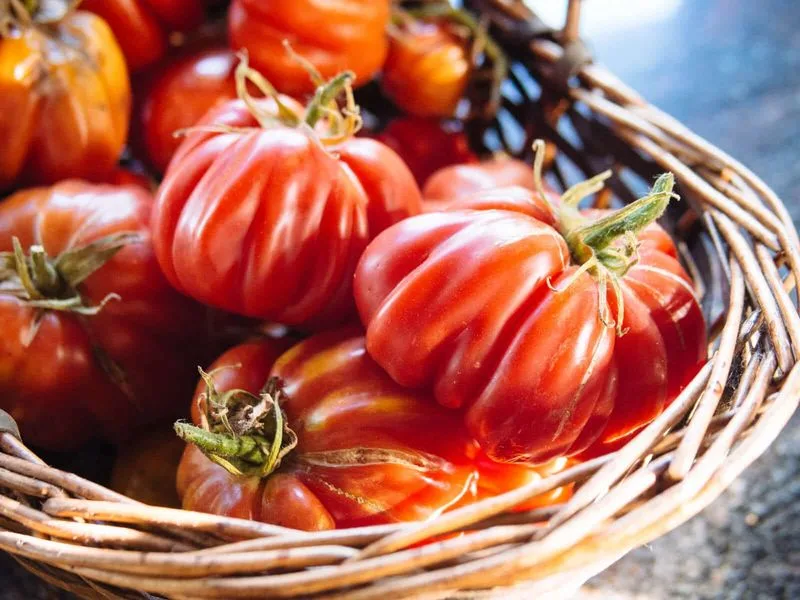
Boost your tomatoes with a nutrient-rich compost tea. This liquid fertilizer is teeming with beneficial microbes that enhance soil health. Brew by steeping finished compost in water for several days, stirring occasionally. Apply as a foliar spray or soil drench. Compost tea strengthens plant immunity and promotes vigorous growth. Regular use can lead to impressive yields and robust plants. It’s an environmentally friendly way to elevate your gardening game. Brew and apply this tea for healthier, happier tomatoes.

